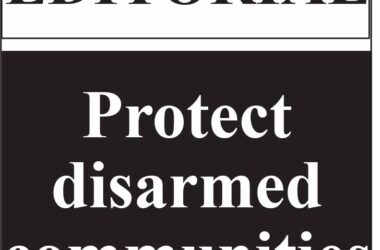It goes without saying that it is the Government’s responsibility to protect civilians across South Sudan. It cannot choose to look away from the havoc caused by armed cattle keepers and ethnic youth groups. It is crucial that armed interventions by state and national authorities are aimed at protecting civilians- including children- and preventing further violence.
Those that are fighting and killing need to immediately be apprehended and brought to justices. South Sudan’s transitional leaders, as well as the political actors and community leaders in Jonglei and Upper Nile, bear responsibility for the violence and for not acting fast to avert the current onslaught on innocent women and children in Pibor Administrative Area.
News of youth mobilizing in large numbers to attack Pibor was reported but the government did nothing to stop it from happening. The transitional leaders must act now. We have written editorial on the need of early action and preventive diplomacy, to save lives and reduce human suffering before the attack on Pibor.
If a government system cannot keep law and order in a country – will it be wrong to call it a failed government? How could a serious government be overwhelmed by armed civilians? This issue of letting civilians possessing guns and roaming with it without any control must stop. Let serious disarmament be done.
The Government must also allow CTSAMVM to investigate the conflict, and hold those who continue to incite and engage in violations accountable. Efforts by the Humanitarian Community to help the situations in Upper Nile and Jonglei and other parts of South Sudan are commendable.
The key question however, is whether the current situation is sustainable. Especially considering the limited resources and capacity of UNMISS in parts of the state; and the lack of adequate and unpredictable interventions by the Government to protect civilians.
South Sudan’s leaders must deliver the results they have promised – in accordance with the timelines in the roadmap – and do so by dedicating sufficient resources.
Since independence 11 years ago, South Sudan has been caught in a cycle of broken promises and deaf ears followed by armed conflict. That cycle continues today. Without actual commitment from the government, there is a real risk that the Cease Fire and the Peace Agreement breaks down.
The region played a key role in the comprehensive peace agreement in 2005, as well as in the subsequent agreements in 2015 and in 2018. And as guarantors to the peace agreement, the African Union, IGAD and regional and international development partners should recognize that South Sudan is again at the brink of disaster. All tools available must be used to prevent it. The people of South Sudan have suffered enough.



